For those who suffer from seasonal allergies, the long-awaited arrival of spring is a double-edge sword that brings blooming flowers and sunshine — along with airborne pollen and other allergens that will stuff noses and make eyes water. Going indoors offers some relief — unless you encounter one of these 15 things within the home that can actually cause allergy symptoms to become worse.
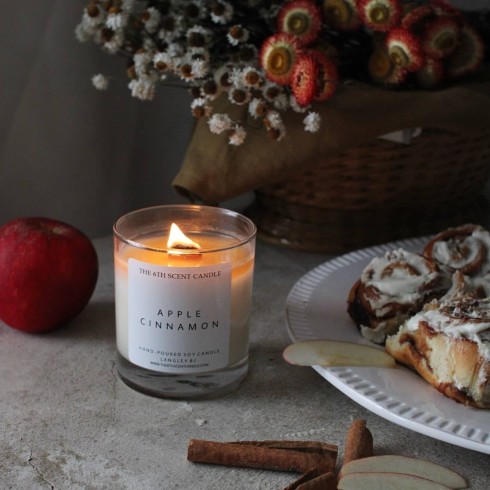
Scented Candles
Those scented candles that mask unpleasant odours and keep your home smelling like pumpkin spice or lavender could also be exacerbating seasonal allergy symptoms. Even though scented candles don’t release allergens, the chemicals released by these fragrant candles can serve as irritants to those who suffer from asthma or pollen allergies, and can trigger similar symptoms such as watery eyes and sneezing.

fruits-veggies
If you suffer from pollen allergies, certain fruits and vegetables could actually be making your symptoms worse. Up to five per cent of the population could be affected with oral allergy syndrome, in which a pollen-like protein found in tomatoes, celery, apples and other types of produce can cause a “cross reaction” that tricks the body into thinking it’s encountering pollen. “The immune system recognizes the pollen and similar proteins in the food and directs an allergic response to it,” notes the American College of Allergy, Asthma, and Immunology. Symptoms of oral allergy syndrome will occur moments after eating those foods, and include itching and/or swelling of the throat, mouth, tongue, and lips.
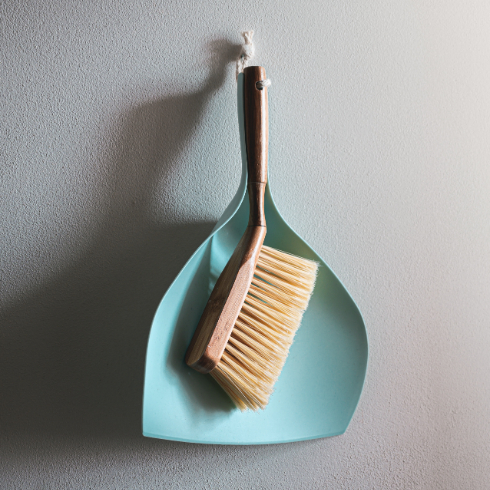
Brooms
Sweeping the floor with an old-school broom can be a big no-no for those with allergies, as you’re actually activating settled dust and sending those particles – much of which are comprised of potential allergens such as dust mites, pet dander and the like – into the air. If you’re prone to allergies, put away the broom and use a damp mop instead. Even better: invest in a vacuum cleaner with a HEPA filter, which will trap all that particulate matter so it doesn’t become airborne.
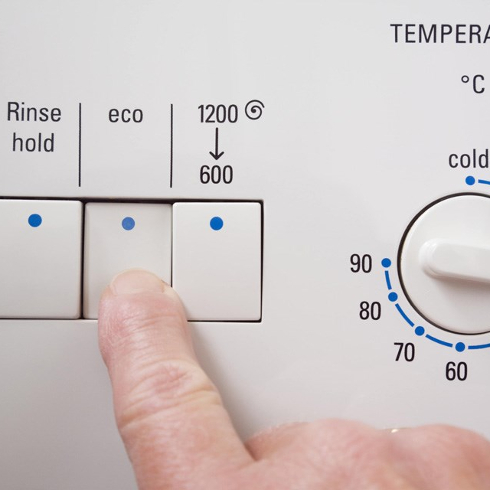
Washing Machine
If you’re not washing your clothes at a high enough temperature, you could be setting yourself up for excess allergy suffering. According to Prevention magazine, a study demonstrated that laundering cotton sheets at 140°F killed 100 per cent of dust mites, while a wash of 104°F destroyed only 6.5 per cent of the little critters. If your washing machine has a “sanitize” setting, that’s usually hot enough to do the trick to eliminate dust mites that will exacerbate allergy symptoms.
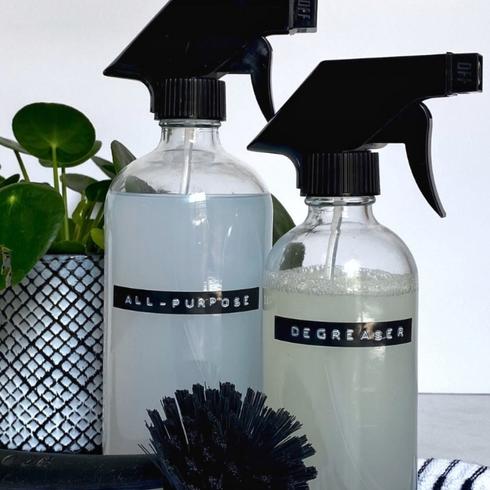
Cleaning Products
Many cleaning products contain an array of scents and chemicals that can trigger and worsen allergy symptoms, and the effects can be felt long after the cleaning has taken place. “What many don’t realize is that airborne chemicals from a range of household products — soaps, detergents, cleaning supplies — can linger in the home,” explains Dr. Bob Geng, Board Certified Allergist/Immunologist and a medical advisor for Honeywell Air Purifiers.
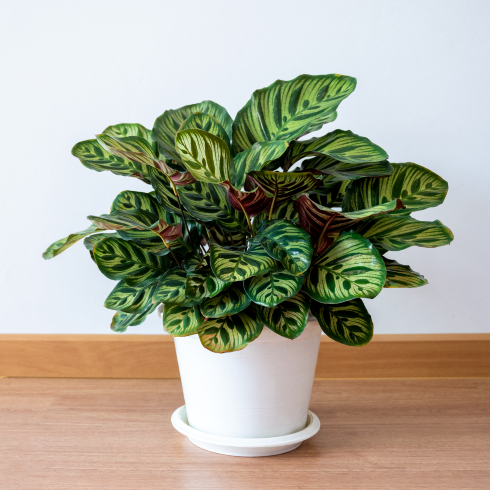
Houseplants
Those delightful houseplants that add greenery to your home could be responsible for clogging up your nose and making your eyes water. According to a Belgian study, more than 75 per cent of people who suffer from hay fever are allergic to at least one common houseplant, with ficus, yucca, ivy, palm, orchid and fern varieties the biggest culprits in irritating those who are already prone to allergies, as allergens in plant sap can diffuse into the air and lead to allergy symptoms.
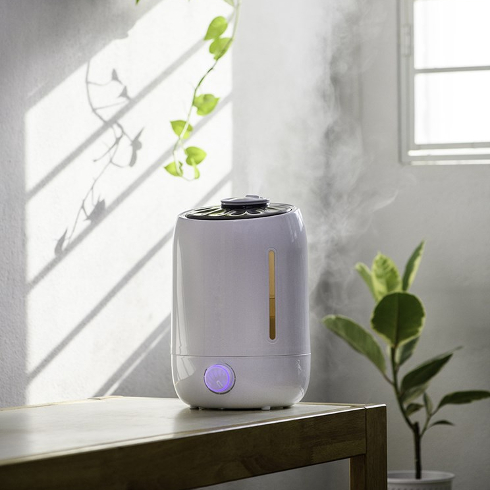
Humidifier
Humidifiers are typically recommended for those suffering from allergies by easing breathing and lessening symptoms. However, in some cases humidifiers may have the opposite effect by making allergies worse; mold and bacteria can build up in humidifiers, and if they’re not cleaned regularly will release a dirty mist that can cause flu-like symptoms and make allergy symptoms more severe. In addition, the extra humidity produced can promote the growth of dust mites in the home, which is bad news for those allergic to dust mites.

Windows
When springtime arrives, the pleasant, warmer weather makes it tempting to open up the windows and air out your house. Unfortunately for allergy sufferers, this will also let pollen and other outdoor allergens inside the house, which will be bad news for your sinuses.
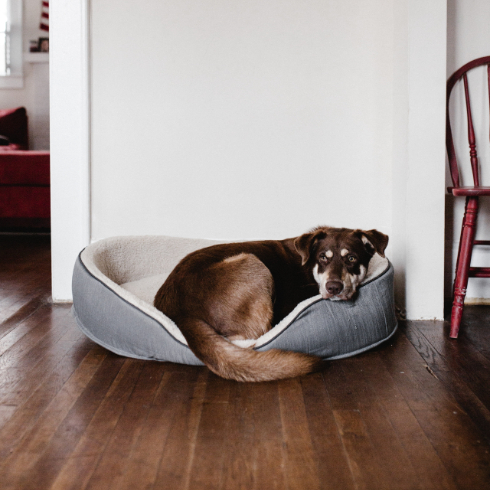
Pets
Even for those who aren’t allergic to cat fur or dog dander, your beloved pet may be unwittingly making allergy symptoms worse. If a pet has been romping around in the great outdoors, there’s a good chance that Rover’s fur is loaded with pollen or other outdoor allergens that will make allergy sufferers miserable whenever they get near. This is even worse if you let your pet sleep on your bed, guaranteeing you’ll have a lousy night. During allergy season, try not to pet your animals too much, and wash hands immediately after doing so; it’s also a good idea for more regular pet bathing, and definitely keep them off the bed.
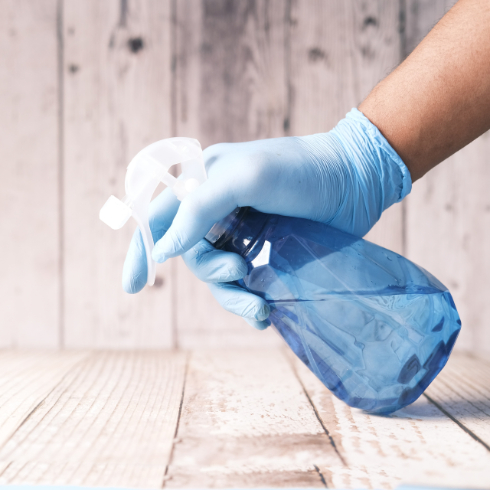
Air Fresheners
Like scented candles, the same air fresheners that make your home smell lovely can be playing havoc with your allergies, causing allergy-like symptoms such as a runny nose or a headache. According to the Journal Of Environmental Health, 19 per cent of people experience adverse reactions to air fresheners, which don’t produce allergens but can produce similar symptoms that can be particularly severe in those who already have allergies.

Red Wine
Kicking back after a tough day with a glass of wine may be restorative to the soul but it can also be rough on allergies. That’s because red wine contains proteins from grapes, bacteria and yeast — as well as sulfites and other compounds — that can cause an allergy-like reaction. Red wine is a prime culprit, since the skins of grapes contain a protein allergen called LTP that can lead to a stuffy nose and other allergy-like symptoms. In addition, drinking any type of alcohol can increase blood flow to the lining of the nasal cavity, which can make allergy symptoms even worse.
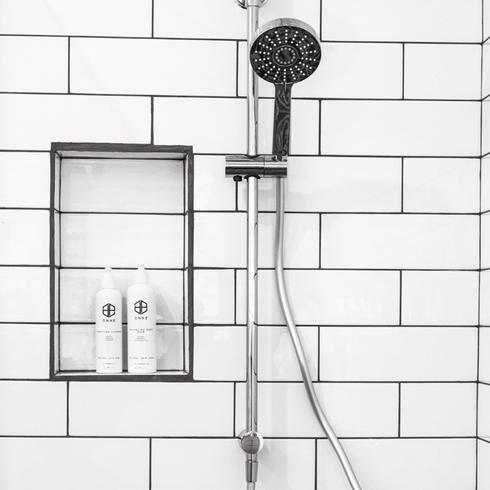
Shower
No, taking a shower doesn’t make allergies worse, but when you take a shower sure can. If you’re one of those who starts your day with a steamy shower, by the end of the day your body could well be coated with all manner of dust, pollen and other allergens. If you’re prone to allergies, instead try showering at night, before bed, which will rinse off any dust and pollen and ensure a restful sleep free of allergy symptoms.
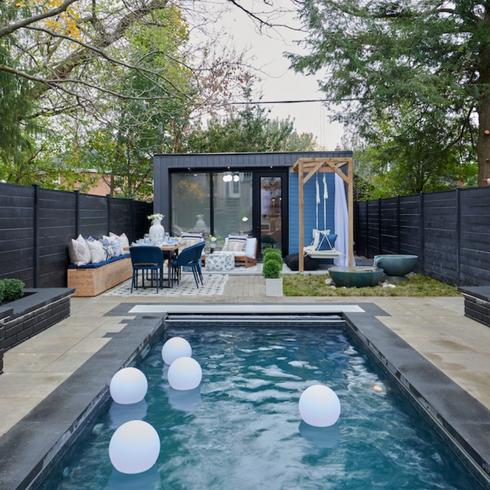
Swimming Pool
Anyone who spends any time in a backyard swimming pool may find that the chlorine can do a serious number on allergies. “The chlorine-based oxidants in water or air floating at the pool surface cause some airway changes and promote the development of allergic diseases,” notes a study, adding that chlorine can irritate skin, eyes and the upper respiratory tract.
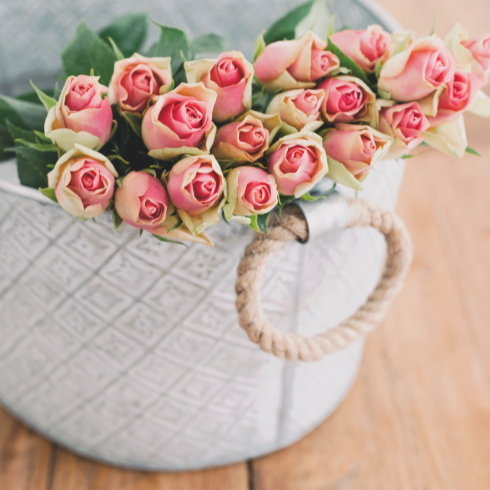
Fresh Flowers
If you have a seasonal allergy to pollen, that bouquet of flowers that’s brightening up your home could also be contributing to increase the severity of your symptoms. Certain flowers, such as sunflowers and chrysanthemums, can make symptoms worse.

shoes
We have a tendency to keep our shoes on inside the house during the spring and summer months, but this can be a big no-no for allergy sufferers, as your shoes could well be covered in pollen that you’ll be tracking all over the house. Best bet: take off your shoes and change your clothes when you come inside, and toss them into the washing machine asap in order to prevent allergy symptoms from worsening.
See More: Bad Habits That Are Destroying Your Home
HGTV your inbox.
By clicking "SIGN UP” you agree to receive emails from HGTV and accept Corus' Terms of Use and Corus' Privacy Policy.




